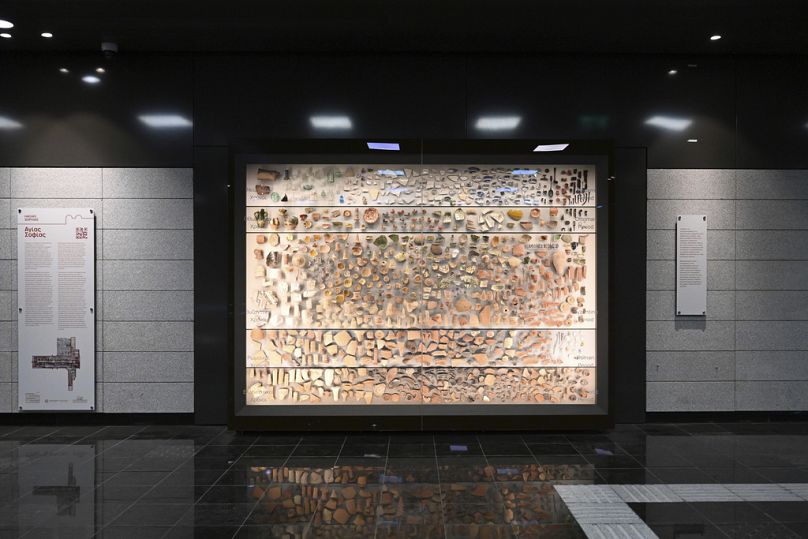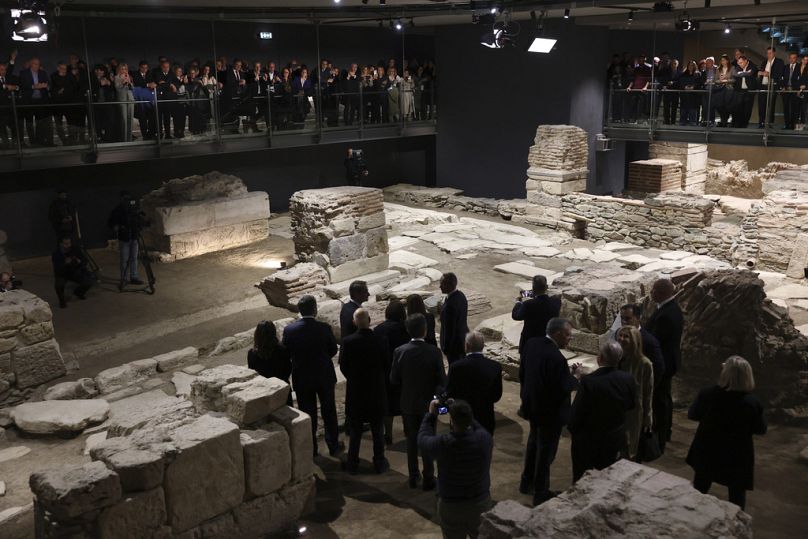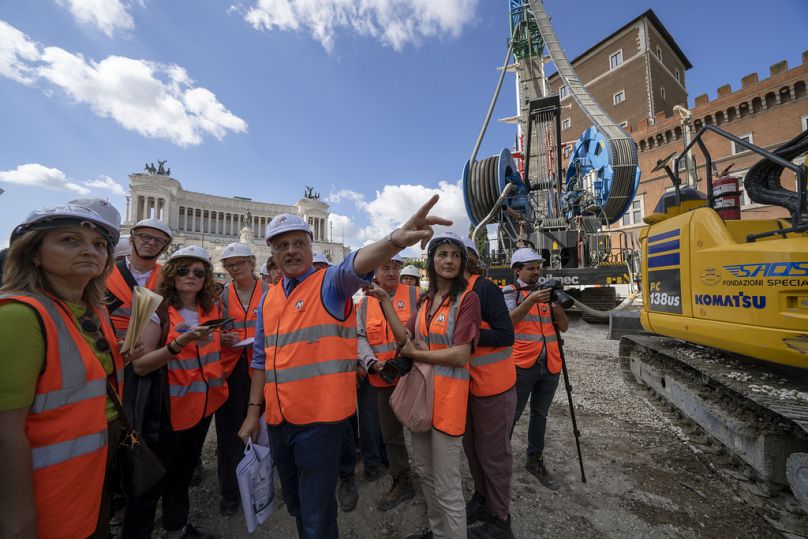The Thessaloniki metro was first conceived more than a century ago, and the first tunnel was dug in 1986.
A new metro whose first construction began about 38 years ago has been inaugurated in Thessaloniki, Greece's second-largest city.
 ADVERTISEMENT
ADVERTISEMENT
 ADVERTISEMENT
ADVERTISEMENT
The 9.6-kilometre inaugural line - using driverless trains and platform screen doors across 13 stations - was officially opened on Saturday by Prime Minister Kyriakos Mitsotakis.
The public will be able to use it for four days completely free of charge, and then the ticket price will be 0.60 euros, officials say.
The Thessaloniki metro was first conceived more than a century ago, and the first tunnel was dug in 1986. Construction began in earnest in 2003 and unearthed a treasure trove of antiquities in a vast excavation beneath the densely populated city of a million residents.
In 2013, the project was nearly abandoned, but in 2015 the Central Archaeological Council finally agreed to detach the antiquities and reposition them at one of the stations, Venizelos.
“This project offers a remarkable blend of the ancient and modern, integrating archaeological heritage with metro infrastructure,” Christos Staikouras, the transport and infrastructure minister, told reporters Friday on a media tour of the subway.
Tunnelling followed ancient commercial routes through the centre of the port city that has been continuously inhabited since ancient times. It exposed a Roman-era thoroughfare, ancient Greek burial sites, water and drainage systems, mosaics and inscriptions, and tens of thousands of artefacts spanning centuries, also through Byzantine and Ottoman rule.
The tunnels had to be bored at a greater depth than originally planned, adding cost and delays, to preserve the ancient discoveries.
Key pieces of what was found have been put on display along the underground network, including a section of the marble-paved Roman thoroughfare at the central Venizelou Station.
“The project faced substantial delays and many challenges, including over 300,000 archaeological finds, many of which are now showcased at various stations along the main line,” Staikouras said.
Its completion has been greeted with quiet amazement by residents who for years used the metro project as a punchline for bureaucratic delays and undelivered promises.
Significant delays also occurred due to financial problems faced by the project's contractor, AEGEK, which during the economic crisis that began in 2009 was driven to collapse.
Government officials said the cost of the metro so far has reached three billion euros for the first completed line of the subway system - and most of a second line which is currently under construction and due to be delivered in a year.
The construction consortium was made up of Greece’s Aktor, Italy’s Webuild, and Japan’s Hitachi Rail.
Meanwhile, Rome's metro Line C is still being built
Rome's Line C is being plagued with the same problem as the metro in Thessaloniki - the unearthing of many archaeological discoveries.
It's now a pharaonic project marked by delays and escalating costs since its inception in the 1990s. Construction, which began in 2006, has been significantly slowed down by the continuous discovery of invaluable archaeological artefacts, requiring delicate excavation and preservation efforts.
Initially scheduled for completion in 2000, the timeline has been significantly extended, with new estimates indicating a possible completion by 2035. The ongoing delays and technical complexities have driven up the total cost of the project to over seven billion euros.
Despite the challenges, Line C represents a strategic project for Rome's mobility, aimed at connecting the outskirts to the historic centre. The presence of numerous archaeological stations along the route makes it, like Thessaloniki's metro, a rare experience where archaeology and transportation meet.
However, the continuous postponements and the economic impact of the project raise questions about the sustainability of this ambitious undertaking.













